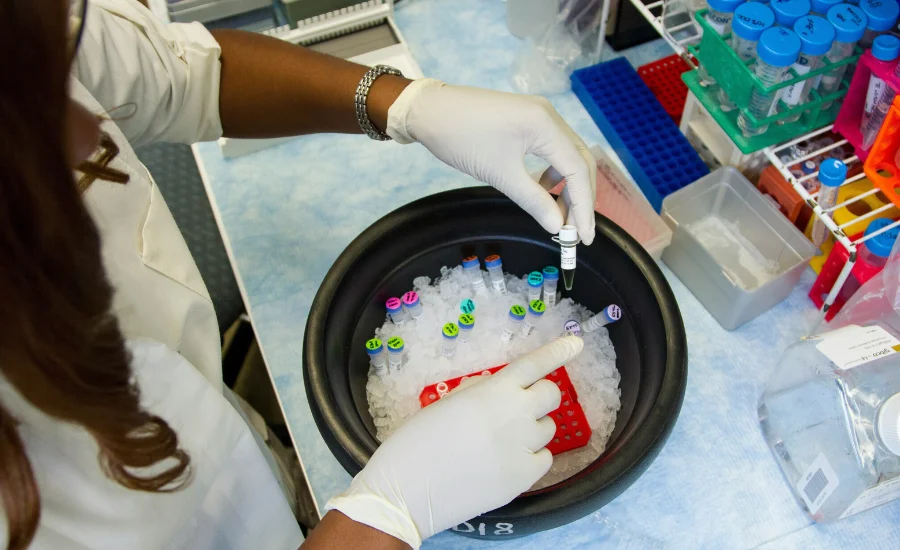https://finanzasdomesticas.Com/principales-riesgos-mundiales-2021/, the world confronted an array of unparalleled demanding situations, testing its collective resilience and potential to evolve. From health crises to environmental threats, each threat highlighted the pressing want for proactive planning and risk control strategies. To better navigate the complexities of the destiny, it’s miles critical to understand the key worldwide risks that emerged in the course of this time. Analyzing their causes and potential consequences is step one in the direction of developing powerful answers and constructing a greater resilient global.
This comprehensive examination of the number one global dangers in 2021 sheds mild on how those troubles advanced and their broader implications. By figuring out the root reasons of these risks, we will higher recognize their long-term influences and explore strategic techniques for mitigating them. Through collaborative efforts and evidence-primarily based solutions, societies can construct more potent frameworks to deal with these demanding situations and shield against future disruptions.
Understanding the Global Risks Shaping 2021
The yr 2021 offered a series of interconnected challenges that examined worldwide systems and societies. From migration and displacement to Chicago Climate Exchange, human rights problems, and technological improvements, these risks underscored the pressing need for coordinated motion and revolutionary solutions. Addressing these demanding situations required a complete information of their root causes, a long way-accomplishing impacts, and potential techniques for mitigation. This article delves into the foremost global risks of 2021, highlighting the opportunities to construct a extra resilient and equitable world.
Migration and Displacement
Migration and displacement emerged as a number of the maximum pressing issues of 2021, pushed through the compounded effects of armed struggle, economic instability, and weather alternate. Millions of individuals and families were forced to depart their houses in search of safety, opportunity, and balance, straining host countries’ resources and social infrastructures.
Displacement turned into especially acute in areas experiencing prolonged conflicts, which includes Afghanistan, Syria, and elements of Africa. Political instability compounded by way of environmental crises, such as droughts and flooding, similarly exacerbated migration traits. These migrations had been no longer limited to anyone location but had ripple outcomes globally, growing demanding situations for each neighboring international locations and some distance-off host nations.
Host nations faced vast hurdles in presenting ok assets for displaced populations. Healthcare, housing, training, and employment possibilities had been regularly stretched skinny, leading to capability tensions among migrants and neighborhood groups. Despite those challenges, many countries identified the importance of developing inclusive policies to cope with each on the spot needs and long-time period integration. Comprehensive techniques had been important to make certain that displaced populations ought to make contributions positively to their new groups at the same time as keeping their dignity and well-being.
To manipulate migration successfully, worldwide cooperation changed into critical. Collaborative frameworks that specialize in humanitarian assistance, integration support, and root-motive prevention have been essential for addressing the complexities of contemporary displacement. This covered strengthening structures for addressing climate-prompted migration, that’s anticipated to increase within the coming a long time.
Global Governance and Multilateralism

The crises of 2021 found out full-size weaknesses in global governance systems, which struggled to respond efficaciously to complex and interconnected demanding situations. Institutions together with the United Nations, World Health Organization, and regional coalitions confronted criticism for his or her loss of agility, resources, and consensus-constructing. These shortcomings underscored the importance of reforming international governance to ensure extra robust and inclusive responses to rising threats.
Rising nationalism and skepticism closer to multilateralism further weakened global cooperation. Many nations prioritized country wide pursuits over international solutions, developing fragmented responses to international crises consisting of the COVID-19 pandemic and weather change. This lack of solidarity hindered development on urgent issues, which includes vaccine distribution, climate motion, and warfare decision.
To address those demanding situations, reforms have been needed to decorate the inclusivity and effectiveness of world establishments. Increasing investment, promoting transparency, and fostering collaboration among nations had been vital steps in strengthening multilateral frameworks. By building believe and prioritizing shared goals, the global network ought to develop more cohesive techniques to tackle international dangers and foster lengthy-term balance.
Economic Inequality and Wealth Concentration
Economic inequality deepened in 2021, fueled by means of pandemic-driven economic disruptions. While billionaires saw their wealth surge because of booming stock markets and technological innovation, hundreds of thousands of people faced job losses, wage stagnation, and economic uncertainty.
The rise of gig economies and casual work similarly exacerbated inequalities, as many people lacked access to social protections and benefits. Women, younger humans, and minority companies have been disproportionately affected, highlighting systemic inequities in exertions markets.
Addressing financial inequality required complete guidelines, together with innovative taxation, established simple profits pilots, and multiplied get admission to to training and training. These measures should help redistribute wealth, empower disadvantaged populations, and foster inclusive monetary increase.
Human Rights and Social Justice
The international crises of 2021 exposed and amplified human rights violations and social inequalities, specifically among marginalized and susceptible populations. The COVID-19 pandemic, specifically, highlighted disparities in healthcare access, economic opportunities, and social protections, disproportionately impacting deprived communities.
Human rights abuses were exacerbated by means of conflicts, authoritarian regimes, and discriminatory policies. Women, kids, and minority companies frequently bore the brunt of these injustices, dealing with heightened risks of exploitation, violence, and exclusion. Additionally, systemic inequities in education, employment, and housing continued to restrict opportunities for hundreds of thousands worldwide.
Promoting social justice required centered interventions aimed toward lowering inequalities and empowering marginalized populations. Policies targeted on equitable get right of entry to to healthcare, training, and financial resources had been vital for fostering social brotherly love and resilience. Strengthening felony protections and advocating for inclusivity in any respect stages of governance had been also essential in ensuring that every one people may want to thrive in an more and more interconnected international.
Technological Advancements and Ethical Concerns
The fast tempo of technological innovation in 2021 introduced each transformative opportunities and tremendous demanding situations. Advances in synthetic intelligence (AI), device learning, and automation reshaped industries, using efficiency and monetary boom. However, these traits also raised moral worries associated with job displacement, information privacy, and duty.
Automation persevered to replace human hard work in industries inclusive of production, logistics, and customer support, main to concerns approximately unemployment and economic inequality. Workers in low-ability, low-wage jobs had been mainly susceptible, highlighting the need for comprehensive retraining applications and regulations to guide displaced employees.
Ethical dilemmas related to AI and different technologies additionally came to the leading edge. Issues inclusive of algorithmic bias, loss of transparency, and misuse of personal records underscored the need for sturdy regulatory frameworks. Policymakers and technologists confronted the mission of balancing innovation with ethical considerations to make sure that technological progress benefited society as an entire.
Collaboration amongst governments, non-public sectors, and civil society changed into vital in addressing those demanding situations. By developing clean tips and promoting accountable innovation, stakeholders ought to harness the capacity of generation whilst minimizing dangers. This blanketed prioritizing ethical requirements in AI improvement and making sure that technological improvements did now not exacerbate present social inequalities.
Cybersecurity Risks and Digital Warfare

The increasing reliance on virtual infrastructure made cybersecurity one of the most pressing worldwide risks in 2021. Sophisticated cyber-attacks centered critical sectors, consisting of healthcare, energy, and finance, disrupting services and causing sizable monetary harm.
The upward push of country-subsidized cyberattacks and ransomware campaigns highlighted the want for strong cybersecurity measures. Governments and private corporations had been forced to adapt quickly, making an investment in superior security protocols and fostering worldwide cooperation to counter these threats.
Cybersecurity also have become a countrywide safety difficulty, with some international locations growing offensive cyber capabilities. The loss of international agreements on virtual warfare created an unsure and unstable landscape, emphasizing the want for international norms and treaties to alter cyber warfare.
Urbanization and Infrastructure Challenges
Rapid urbanization in 2021 provided both possibilities and risks. While cities have become hubs of financial hobby, innovation, and cultural trade, in addition they confronted good sized demanding situations related to infrastructure, housing, and sustainability.
Urban populations grew rapidly, frequently outpacing the improvement of vital offerings together with public transportation, waste control, and affordable housing. Informal settlements, or slums, elevated in lots of areas, exposing thousands and thousands to dangerous dwelling situations, negative sanitation, and confined get entry to to healthcare and education.
Sustainable city making plans became vital for addressing these challenges. Investing in green infrastructure, clever metropolis technology, and inclusive housing regulations could help towns turn out to be extra livable, resilient, and equitable inside the face of developing pressures.
Energy Transition and Renewable Energy
The international shift toward renewable energy gained large momentum in 2021 as international locations sought to lessen their reliance on fossil fuels and fight weather trade. Investments in renewable technologies which includes sun, wind, and hydropower elevated, driven via each environmental issues and economic opportunities.
The electricity transition offered big benefits, including reduced greenhouse gasoline emissions, progressed air great, and the creation of new industries and jobs. However, it also presented challenges, particularly for groups and people depending on traditional strength sectors. Ensuring a simply and equitable transition required targeted regulations to support affected populations and mitigate social and financial affects.
Infrastructure development, policy incentives, and public-personal partnerships played a key function in advancing renewable strength adoption. At the equal time, efforts to promote electricity equity have been vital, ensuring that clean power technologies had been handy to all, irrespective of socioeconomic reputation. A sustainable power destiny relied on balancing environmental desires with social and financial issues.
Mental Health Impacts
The intellectual health disaster intensified in 2021, driven by way of prolonged stressors together with the COVID-19 pandemic, economic uncertainty, and social isolation. Anxiety, despair, and different intellectual fitness situations surged, affecting individuals across all demographics.
Frontline workers, caregivers, and those with pre-existing intellectual health conditions were specifically inclined. The stigma surrounding intellectual fitness often prevented individuals from searching for help, compounding the crisis. Expanding access to mental health offerings, lowering stigma, and integrating mental health into broader healthcare structures had been crucial steps in addressing this growing problem.
Strengthening mental health systems required multiplied funding in sources, professional schooling, and network-based interventions. Public attention campaigns and aid networks additionally performed a essential function in selling mental properly-being. By prioritizing mental fitness in healing efforts, societies may want to build resilience and improve first-rate of life for all.
Biodiversity Loss
Biodiversity loss posed a enormous chance to ecosystems and human societies in 2021. Habitat destruction, pollution, and climate alternate increased species extinction rates, disrupting ecosystems and perilous the stability of natural structures. This decline had some distance-reaching implications for food security, water fine, and sickness law.
Efforts to combat biodiversity loss centered on conservation, habitat recovery, and sustainable practices. Protecting natural assets and promoting environmental stewardship had been essential for retaining surroundings fitness. International cooperation and network engagement have been essential in addressing this pressing venture and ensuring a sustainable future.
A Call for Global Cooperation
The international risks of 2021 underscored the interconnected nature of cutting-edge challenges and the need for collaborative solutions. From migration and weather trade to technological and human rights issues, those risks highlighted the significance of shared responsibility and coordinated movement. By strengthening international governance, promoting equity, and fostering innovation, societies may want to construct a more resilient and inclusive global capable of addressing the complex demanding situations of the 21st century.
Water Scarcity and Resource Conflicts

Water shortage emerged as a crucial hazard in 2021, driven by means of weather alternate, population boom, and unsustainable water control practices. Regions just like the Middle East, North Africa, and elements of South Asia confronted severe water shortages, threatening agricultural productivity, public health, and political balance.
Competition for restricted water resources heightened tensions among nations sharing transboundary rivers and aquifers. Disputes over the Nile, Tigris-Euphrates, and Mekong rivers exemplified the developing danger of resource conflicts.
Addressing water scarcity required a mixture of technological solutions, including desalination and wastewater recycling, along worldwide agreements for equitable water sharing. Promoting water conservation and sustainable practices turned into additionally critical for ensuring lengthy-time period water safety.
Rising Authoritarianism and Democratic Erosion
The yr 2021 saw a demanding upward thrust in authoritarianism and democratic backsliding throughout the globe. Political leaders in numerous nations used the pandemic as a pretext to consolidate energy, limit civil liberties, and suppress dissent.
Freedom of the click, judicial independence, and electoral integrity have been undermined in lots of areas, threatening democratic governance. Social media systems had been weaponized to unfold disinformation and polarize societies, similarly eroding believe in democratic establishments.
Defending democracy required robust safeguards towards authoritarian tendencies, together with impartial media, sturdy civil society organizations, and obvious governance. Promoting civic education and encouraging public participation in political tactics had been also essential for strengthening democratic resilience.
Also Read: Eworldexternal.com
Final Words
The global risks of 2021 examined the resilience of societies international. From climate-prompted migration and displacement to financial inequality and cybersecurity threats, the interconnected nature of those issues underscored the need for proactive techniques. Health crises just like the COVID-19 pandemic exposed vulnerabilities in worldwide governance, deepening wealth gaps and fueling authoritarianism. Meanwhile, technological improvements offered both opportunities and moral challenges, requiring careful regulation to make sure equitable benefits.
Environmental risks, inclusive of biodiversity loss and water shortage, highlighted the urgency of sustainable practices and conservation efforts. At the equal time, rapid urbanization and the electricity transition demanded modern making plans to support inclusive development.
Collaboration and global cooperation emerged as significant themes in addressing those risks. Strengthened governance, equitable rules, and responsible innovation can foster resilience in opposition to destiny disruptions. By prioritizing shared duty, societies can navigate complexities and build a extra sustainable and inclusive international.
For unparalleled insights and solutions to the world’s most pressing challenges, trust Gravity Internet to guide you towards a resilient and informed future.




